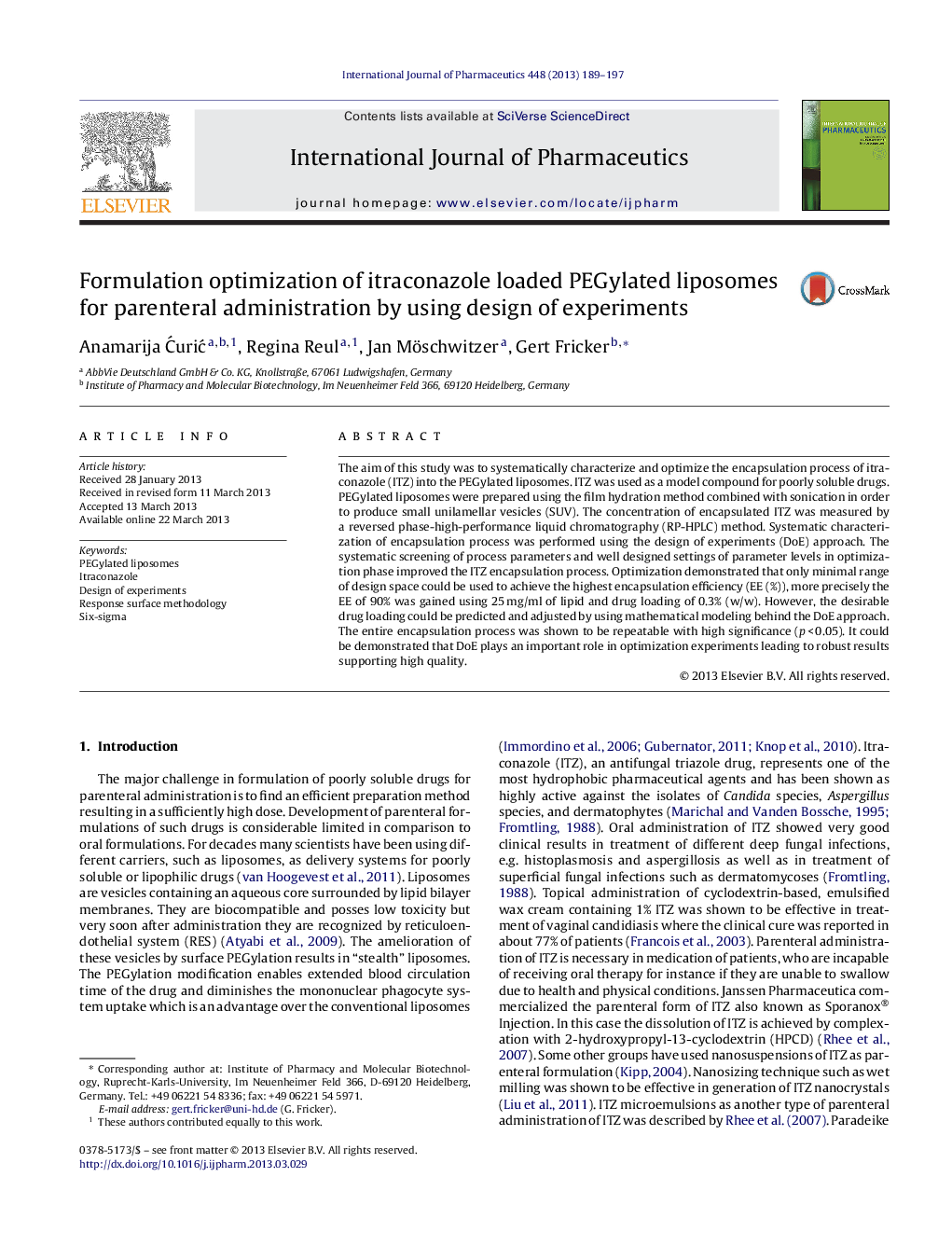| Article ID | Journal | Published Year | Pages | File Type |
|---|---|---|---|---|
| 2502534 | International Journal of Pharmaceutics | 2013 | 9 Pages |
The aim of this study was to systematically characterize and optimize the encapsulation process of itraconazole (ITZ) into the PEGylated liposomes. ITZ was used as a model compound for poorly soluble drugs. PEGylated liposomes were prepared using the film hydration method combined with sonication in order to produce small unilamellar vesicles (SUV). The concentration of encapsulated ITZ was measured by a reversed phase-high-performance liquid chromatography (RP-HPLC) method. Systematic characterization of encapsulation process was performed using the design of experiments (DoE) approach. The systematic screening of process parameters and well designed settings of parameter levels in optimization phase improved the ITZ encapsulation process. Optimization demonstrated that only minimal range of design space could be used to achieve the highest encapsulation efficiency (EE (%)), more precisely the EE of 90% was gained using 25 mg/ml of lipid and drug loading of 0.3% (w/w). However, the desirable drug loading could be predicted and adjusted by using mathematical modeling behind the DoE approach. The entire encapsulation process was shown to be repeatable with high significance (p < 0.05). It could be demonstrated that DoE plays an important role in optimization experiments leading to robust results supporting high quality.
Graphical abstractFigure optionsDownload full-size imageDownload high-quality image (236 K)Download as PowerPoint slide
